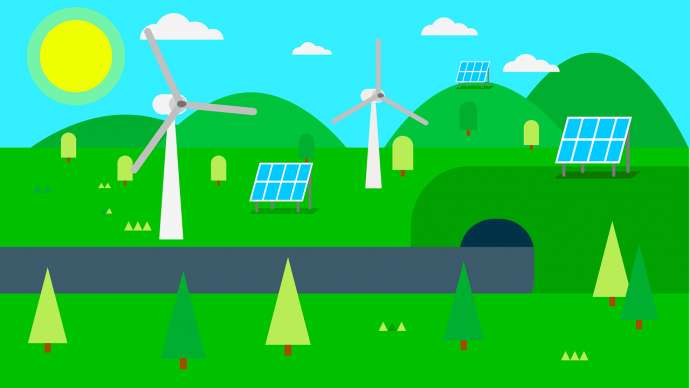STA, 27 February 2020 - The outgoing government endorsed on Thursday the National Energy and Climate Plan, a set of energy policy and climate change mitigation measures until 2030. The document, which will now be sent to Brussels, is "realistically ambitious", said Infrastructure Minister Alenka Bratušek.
The plan, which was revised after its draft was met with criticism from both industry and environmental NGOs, will serve as the basis for Slovenia's long-term climate strategy.
The government called it "a key step towards a climate-neutral Slovenia until 2050" on Twitter today.
Bratušek told the press after today's cabinet session that the goal was to cut overall greenhouse gas emissions by 36%, improve energy efficiency by at least 35% and have at least 27% of energy come from renewable energy sources.
The outgoing minister announced that investment into research and development would reach 3% of GDP, of which 1% would be public funds.
These are the minimal goals that Slovenia has to meet until 2030 if it is to avoid sanctions, Bratušek said, adding that the document adopted today also clearly showed how these goals would be achieved.
If Slovenia fails to raise its share of renewable energy to 25%, it will have to pay a fine of some EUR 10 million as early as next year.
The plan preserves the country's nuclear power facilities in the current size although with less use of fossil fuels and more renewable energy sources, in particular solar and wind, and adds waste co-incineration.
Following criticism by the state-owned power utility HSE and the Chamber of Commerce and Industry (GZS) that the draft plan did not involve new hydro plants on the central Sava river, the final version includes plans for further use of hydro energy.
Analyses of alternatives to hydro and the role of hydro energy use in meeting Slovenia's goal of becoming climate neural by 2050 are also planned.
As for a new reactor at the Krško Nuclear Power Station (NEK), the document says that a decision on a potential construction should be made by 2027 at the latest.
A decision will also have to be made on the extension of the lifespan for the existing reactor, which expires in 2023. "This is why we must make sure that it will be able to function by 2043 as planned," Bratušek said.
Coal use has not been tackled yet and is to be resolved in Slovenia's Energy Concept until 2060.
Slovenia was obligated to adopt the Energy and Climate Plan and forward it to the European Commission under the EU regulation on the governance of the energy union and climate action if it wants to draw cohesion funds in 2021-2027.
The GZS welcomed the new version of the plan yesterday, but still voiced some concerns, especially regarding GDP growth estimates. The GZS believes economic growth is underestimated in the document and subsequently also the total energy consumption.
A 30% share of renewable energy sources is still beyond reach for industry as there are no assurances that green sources of energy will be available, said the GZS, which also called for a compensation scheme for indirect emissions, which all EU countries bar Slovenia and Romania have.






